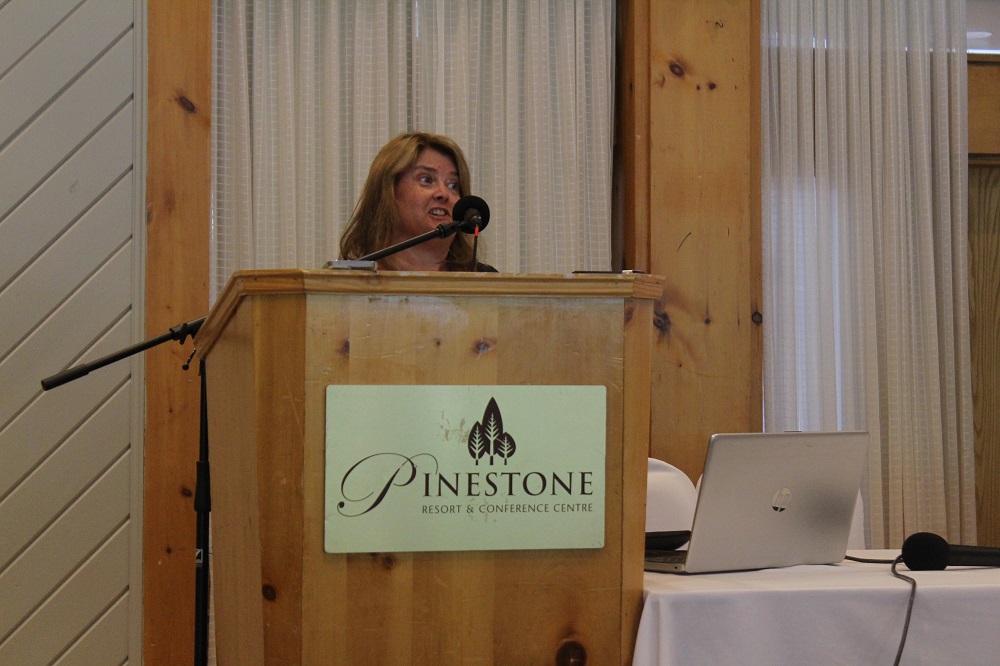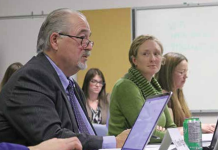A rural living and dementia care conference, focusing on challenges, solutions and innovations associated with the terminal illness, provided hope and answers to some attendees at Pinestone Resort June 3.
Hosted by Aging Together as Community Haliburton Highlands (ATAC) and McMaster University, the event brought professors, family physicians, and other healthcare specialists face-to-face with the Highlands community last week.
Speakers ranged from those living with dementia, to experts discussing unique care models working in other countries – such as green care farms and the butterfly model of care, both prominent in Europe.
County residents Beth and Peter O’Connor started the day, sharing their personal experiences fighting dementia. Beth was diagnosed with Lewy body syndrome – a type of dementia – in June 2023. She said she’d been experiencing symptoms for about a year, beginning while they were on vacation in Newfoundland in the summer of 2022.
Beth said they both caught COVID-19 while out east – Beth was hospitalized with a high fever, which she says she’s thankful for as it was that hospital stint that led, eventually, to her dementia diagnosis. Prior to her diagnosis, Beth said she was planning her retirement.
“To me, it wasn’t so much an age thing, it was there was something wrong and it wasn’t going away,” said Beth of her diagnosis.
In her talk, Beth mentioned how she saw hope in her own journey with dementia – and of new innovations in artificial intelligence in dementia care.
“Things and habits I do for myself are better than any medicine; exercise, diet, and a positive frame of mind. Staying active socially and being involved in things like yoga,” said Beth, when describing how she’s coped with the diagnosis.
Dr. Sandy Shamon, a lecturer at the University of Toronto and a clinical professor at McMaster University, talked about breaking down barriers to care and the challenges surrounding that.
She touched on how there is work to be done in getting medical and nursing students to choose geriatric care and to work in longterm care facilities. She believes being an active part of community, and making new connections, can go a long way for people struggling with dementia.
Shamon said the World Health Organization is starting to recognize that the health and wellbeing of an individual cannot be separated from the health and wellbeing of the community, or “the ecosystem”. Shamon also touched on the importance of advocacy work, pushing for change in dementia care.
Bonnie Roe, the ATAC lead, said she likes these types of events because it gets “everyone’s voices involved.” The goal, she said, is spreading the idea that just because you’re aging doesn’t mean you belong in a long-term care home.
“I think that’s what an event like today does,” she said.
Roe notes that “we’re all aging” and the point is, “how do we age in a way that reflects who we are as an individual and who we’ve been as a person.”





